Donald Trump faces Senate backlash over cabinet of billionaires
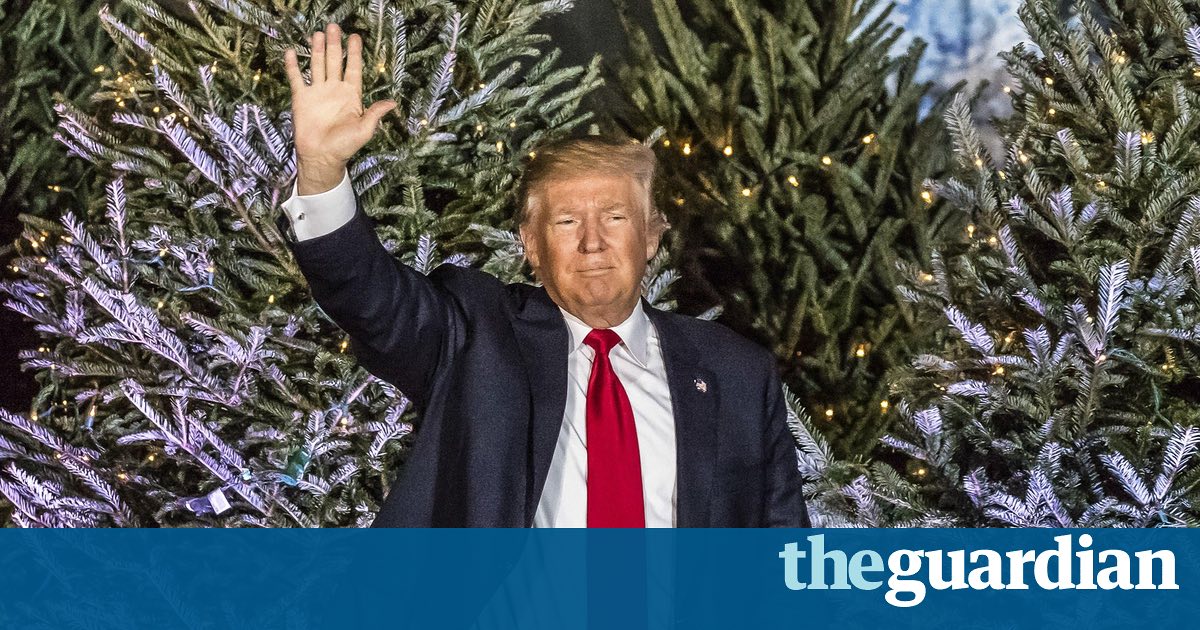
President-elect vowed to drain the swamp in Washington but critics say key roles for business elite is not the way
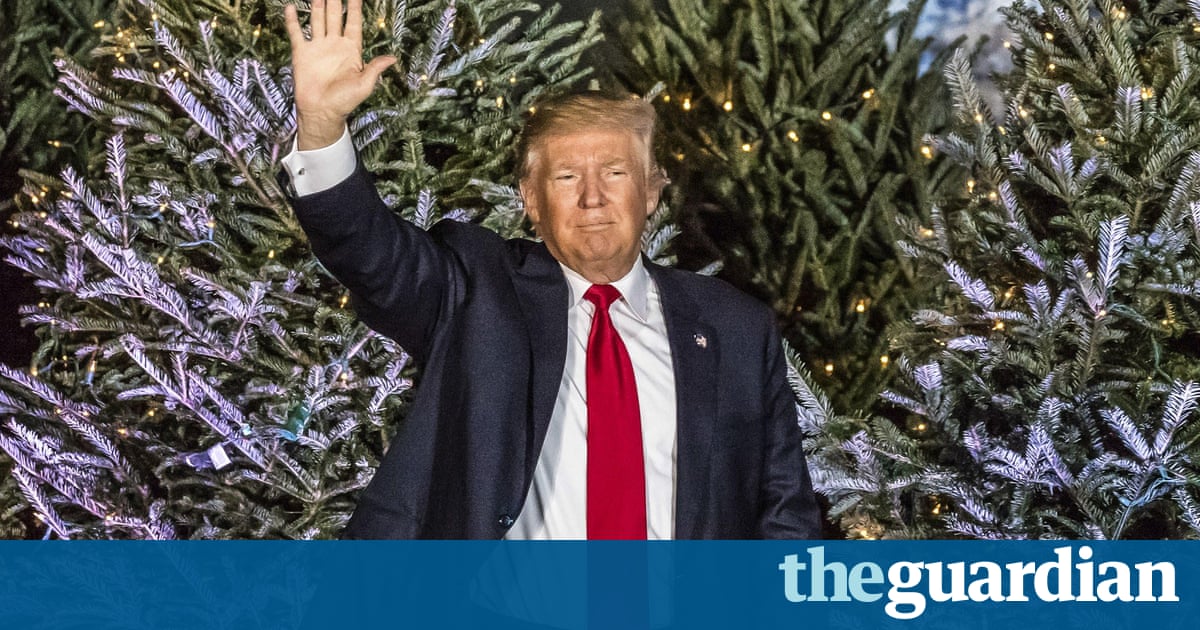
Earlier this month, Donald Trump used a thank-you rally in Des Moines, Iowa, to give his supporters further insight into the deal-making team he intends to build in Washington. As president-elect, Trump has so far nominated a number of billionaires, three Goldman Sachs bankers and the chief executive of the worlds largest oil firm to senior positions. Responding to liberal consternation at the sheer wealth of the prospective appointees, Trump told his audience: A newspaper [the New York Times] criticised me and said: Why cant they have people of modest means? Because I want people that made a fortune. Because now they are negotiating for you, OK? Its no different than a great baseball player or a great golfer.
Trumps cabinet, which is not yet fully filled, is already said to be worth a combined $14bn the richest White House top table ever assembled. His team if all are confirmed by the Senate will be worth 50 times the $250m combined wealth of George W Bushs first cabinet, which the media at the time dubbed the team of millionaires. For Trump, those figures are simply a confirmation of competence: in Trumpian politics, the richer you are, the better you must be at cutting a deal. And deal-making is what the next White House will be all about.
Throughout his campaign, Trump repeatedly returned to the theme of the terrible deals cut by previous administrations, from the North American Free Trade Agreement trade deal to the nuclear deal with Iran.
He described the Nafta with Canada and Mexico as the worst trade deal maybe ever; the Iran nuclear pact was a disaster and the worst deal ever negotiated, and would be ripped up. China, was a big abuser through artificially depressing its currency to give its exports a boost at the expense of US jobs. The implication was that, under the leadership of Trump, America Inc would finally begin to punch its weight in the market of global diplomacy.
According to Peter Henning, a constitutional law professor at Wayne State University, appointing business leaders to top political positions has become the norm in American politics, but Trumps nominations were unique in the volume of people with minimal, if any, government experience.
I am always wary of people who say we have to run the country like a business businesses arent responsible for defence or caring for the elderly, he said. Businesses are driven with one guiding principle to make the most money and that should not be the role of the government.
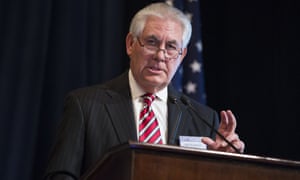
The backlash has begun in earnest. The criticism Trump objected to in Des Moines came from a New York Times editorial questioning the Trump administrations seeming lack of interest in vetting nominees for potential conflicts of interest. Top Democrats and leading ethics and constitutional law experts have also raised concerns about Trumps selection process.
Bernie Sanders, the Vermont senator who campaigned for the Democratic nomination and promised that, if elected, he would redistribute the vast wealth of the 1% to poorer families, has dubbed Trumps top team the cabinet of billionaires.
I guess they have a few poor millionaires on it but, mostly, it is billionaires, Sanders said. He accused Trump of going back on his pledge to lead an anti-establishment revolution and drain the swamp. If the cabinet he appointed of billionaires and millionaires is anti-establishment, boy, I would hate to see what the establishment looks like, Sanders said on NBCs Late Night with Seth Meyers. Maybe I am not seeing something here, but you dont appoint the head of ExxonMobil to be secretary of state. That is not quite taking on the establishment.
It is the selection of Exxons chief executive, Rex Tillerson, whom Trump described as one of the truly great business leaders of the world in an early morning tweet announcing his appointment as secretary of state, that has caused the most upset on both sides of the aisle.
As well as a phalanx of Democrats, leading Republican senators Marco Rubio and Lindsey Graham, and John McCain, the chairman of the Senate armed services committee, have raised concerns about Tillersons close relationship with Vladimir Putin and conflicts of interest arising from Exxons interests in Russia.
Tillerson, 64, who has spent his whole career at the oil giant, was awarded Russias Order of Friendship in 2013 after he agreed a deal with the state-owned oil company Rosneft, run by Putin lieutenant Igor Sechin.
The partnership to drill for oil in the Arctic and explore in Siberia and the Black Sea was iced following the imposition of sanctions on Russia when it annexed Crimea. It means that Exxon has tens of billions of potential Russian assets lying idle. Tillerson has $245m of Exxon stock.
As secretary of state, Tillerson will be leading discussions on whether the US should maintain sanctions against Russia. He will also be forming Americas policy on the Syria crisis, the Iran nuclear deal (which Trump has described as terrible), and relations with North Korea.
When he gets the friendship award from a butcher, frankly, its an issue that I think needs to be examined, McCain told Fox News.
Rubio, who serves on the foreign relations committee that will vet Tillersons nomination before a full Senate vote, has said he has serious concerns about the appointment. The next secretary of state must be someone who views the world with moral clarity, is free of potential conflicts of interest, has a clear sense of Americas interests, and will be a forceful advocate for Americas foreign policy goals to the president, within the administration, and on the world stage, he said.
In its most recent session, the foreign relations committee was composed of 10 Republicans and nine Democrats, meaning that if Trump lost one Republican, Tillersons appointment could be at least stalled.
Other controversial big business appointments include Gary Cohn, Goldman Sachss president and chief operating officer, named as director of the National Economic Council or, as Trump put it, his top economic adviser.
Trump said Cohn, who has worked at Goldman for 26 years and amassed some $200m of the banks stock, would put his talents as a highly successful businessman to work for the American people.
He will help craft economic policies that will grow wages for our workers, stop the exodus of jobs overseas and create many great new opportunities for Americans who have been struggling.
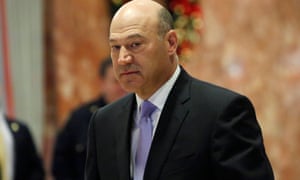
Cohns appointment does not require Senate approval, and could serve as a stepping stone to other government positions at the Treasury or the Federal Reserve, a route that has been well trodden in the past.
Trumps pick for treasury secretary, Steven Mnuchin, is also a multimillionaire former Goldman banker who went on to be dubbed a foreclosure king for buying up distressed mortgages and evicting thousands of homeowners during the financial crisis.
Elizabeth Warren, the Massachusetts Democratic senator, called Mnuchin the Forrest Gump of the financial crisis because he managed to participate in all the worst practices on Wall Street during his lengthy career.
His selection as treasury secretary should send shivers down the spine of every American who got hit hard by the financial crisis, and is the latest sign that Donald Trump has no intention of draining the swamp and every intention of running Washington to benefit himself and his rich buddies, she said.
The selection of three Goldman bankers could open Trump up to criticism as, during the campaign, the president-elect repeatedly highlighted the bank as emblematic of the corrupt global elite that had stolen the futures of hard-working Americans.
Days before the election, Trump launched a TV advert that portrayed the Goldman chairman and chief executive Lloyd Blankfein as the personification of the global elite, which he said had robbed our working class, stripped our country of its wealth and put that money into the pockets of a handful of large corporations and political entities. Trumps ire against Goldman persisted throughout the campaign: he attacked Hillary Clinton for giving paid speeches to the bank and accused his Republican nomination rival Ted Cruz of being owned by Goldman because his wife worked at the bank. He will do anything they demand. Not much of a reformer! Trump said in a January tweet.
But beyond the accusations of brazen hypocrisy, it is the enmeshing of business interests with affairs of state which is causing the deepest concern.
Jordan Libowitz, of the DC watchdog Citizens for Responsibility and Ethics in Washington, said Trumps cabinet had the potential for the most conflicts of interest ever. There have been business leaders, and very rich ones, in the cabinet in the past but never of this depth and scale. The question is not whether he is seeking to run the White House like a business, but more whether he will be running it as his business. People will question whether the provocative actions he has taken so far are in the interests of the country or in the interests of his businesses.
Libowitz said it could be argued that Trump is seeking to use the White House as an extension of Trump Tower. Thats why we think that the only way to remove conflict of interest is for the Trump organisations to be sold outside of the family and the proceeds moved into a blind trust.
Trump has given no indication that he will relinquish ownership of his global real estate and licensing empire. He has only pledged to make no new deals and hand over management to his sons, Donald Jr and Eric, who also have official roles in the transition team. Meanwhile, the billionaires continue to pack their bags for DC. Private equity billionaire Wilbur Ross has been nominated as commerce secretary with a mission to foster, promote, and develop the foreign and domestic commerce.
Ross, 79, who was called a vulture investor for buying up failing companies, cutting jobs and flipping them for often huge profits, has amassed a $2.9bn fortune via his private equity firm, WL Ross & Co. Ross last week agreed to buy a $12m seven-bedroom house on DCs leafy Woodland Drive, known as billionaires row. The 10,000 sq ft gatehouse has a 12-seat cinema and staff quarters, and sits opposite the home of the current commerce secretary, Penny Pritzker.
Working with Ross as deputy commerce secretary will be Todd Ricketts, another billionaire and co-owner of the Chicago Cubs. He inherited his wealth from his billionaire father Joe Ricketts, founder of brokerage TD Ameritrade. The Ricketts family donated $1m to Trumps campaign. Another beneficiary of dynastic wealth nominated to serve under Trump is Betsy DeVos, the daughter-in-law of Amway co-founder Richard DeVos, estimated by Forbes to be worth more than $5bn.
Im not shocked by this, said Senator Sherrod Brown, an Ohio Democrat. Its a billionaire president being surrounded by a billionaire and millionaire cabinet, with a billionaire agenda to hurt the middle class. The appointments suggest that hes going to break his campaign promises.
Trump may feel secure in his picks, given Republican control of Congress, but there is no guarantee they will all make it into office. While Trump himself hasnt published his tax return (despite a four-decade tradition of doing so) or sold any businesses that could represent a conflict of interest, his nominees finances will undergo intense scrutiny.
Senator Orrin Hatch, the finance committee chairman, said nominees will undergo the same bipartisan vetting process as the nominees from previous administrations and will not progress to a public hearing until the committee has reviewed the past three years of a nominees tax returns.
The multi-page questionnaire asks nominees to list all jobs held since college, all business relationships, political activities and contributions, any legal or ethics conflicts and a calculation of the nominee and their familys net worth. They are also under oath to declare if they have paid taxes, including those for household staff.
The law requires that executive branch employees have no role in government matters that could benefit their financial interests or those of their families. It means they must give up any paid or unpaid jobs, including board positions, and sell stock.
Meanwhile, as Trump is exempt from many of the laws that apply to his appointments, he is taking full advantage. He isnt even giving up the limelight of the New Celebrity Apprentice, where he will remain an executive producer while in office. Presidents have a right to do things in their spare time, his adviser Kellyanne Conway said. Another successful deal for the president-elect.
DEAL OR NO DEAL?
China
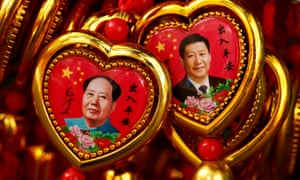
Whats the current deal?
China is the USs second largest trading partner, after neighbour Canada. US exports are vital to Chinas economy and the US is similarly reliant on its cheap imports. However, the US has been alarmed by Chinas attitude to intellectual property and US competition.
What new deal does Trump want?
Trump wants a new trade deal with China. He has said the US was being hurt very badly by China with devaluation, though, in fact, China has been inflating its currency recently. Trump angered Beijing when he took a call from Taiwans president; China regards the island as sovereign territory and US presidents have not spoken to its leaders in 40 years.
How likely is he to get his way?
Trumps Taiwan call seemed like a blunder but has been spun as a signal that US recognition of Taiwan could be a bargaining chip in a better trade deal. But Taiwan is non-negotiable for China and any such move is likely to meet with retaliation that will hurt the US economy and potentially lead to a global trade war or worse.
Iran

Whats the current deal?
Americas historically tense relationship with Iran was somewhat eased last year when the US joined six other nations in signing a landmark nuclear deal. This exchanges a lifting of nuclear-related sanctions on Iran, which were crippling its economy, for a dismantling of its nuclear facilities.
What does Trump want?
Trump has heavily criticised the Iran deal and, at times, threatened to dismantle it; however, his aides said that he would only seek to refine it or negotiate it. This would be extremely difficult and the president-elect has not been clear on what he would replace it with.
How likely is he to get his way?
The likelihood of tearing up the Iran deal is slim, as many of the deals original critics oppose completely dismantling it, including Trumps nominee for secretary of defence, James Mattis. Iran has mostly been in compliance with the deal, according to the International Atomic Energy Agency, which also makes renegotiation difficult.
Defence

Whats the deal?
US defence contractor Lockheed Martins F-35 fighter jet programme, which comes with an estimated $400bn price tag and has been described as the most expensive weapon system in history.
What new deal does Trump want?
A cheaper one. The F-35 programme and cost is out of control, Trump said on Twitter, a pronouncement that knocked Lockheeds share price and those of other defence contractors involved in the project, including Britains BAE. Trump went on to pledge: Billions of dollars can and will be saved on military (and other) purchases after 20 January.
How likely is he to get his way?
Quite. While a president cannot cancel a programme after funds have been allocated, Trump has room for manoeuvre. Many in the US agree the programme is out of control. Even US Senate armed services committee chairman John McCain, who has voiced support for the fighter jet in the past, has suggested the president could buy fewer of the jets in the future.
Russia

Whats the current deal?
Relations have been poor over conflicts in Ukraine and Syria, while US sanctions have pushed Russia into recession. The CIA claims Russia hacked into Democratic National Committee emails to influence the election in Trumps favour.
What new deal does Trump want?
Trump has said he wants better relations with Russia and has complimented Vladimir Putin, including his leadership after the Russian president was accused of killing journalists. He nominated former Exxon chair Rex Tillerson, who has with close ties to Russia, as secretary of state, and has rejected the CIAelection claims.
How likely is he to get his way?
Putin is open to a rapprochement with a Trump-led US. In an address earlier this month, he said he was ready for cooperation with the new American administration. What this means for conflicts in Syria and Ukraine remains to be seen. Politically, this may help Trump in some regions (and hurt in others); economically, it means little. US goods and services trade with Russia is worth about $38bn; with China it tops $659bn.
Read more: https://www.theguardian.com/us-news/2016/dec/18/donald-trump-senate-backlash-cabinet-of-billionaires